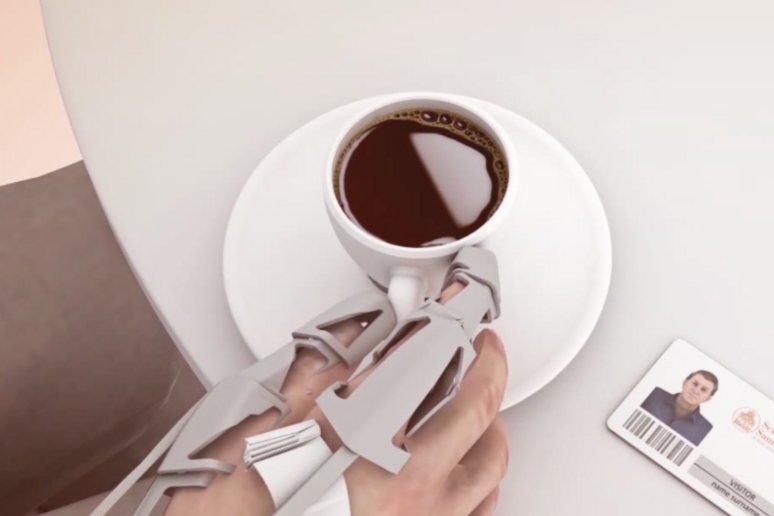Six people with paralysed arms and legs have been able to eat and drink unassisted thanks to an exoskeleton, a hi-tech glove made in Italy by the Scuola Superiore Sant'Anna di Pisa, and controlled in an non-invasive way by electrodes inside a cap, made by the German university of Tubingen. The result has been published in the first number of the Science Robotics journal. The persons helped by the glove are five males and one female aged between 14 and 30. They picked up a plastic bottle to pour water into a glass and also grabbed hold of crisps and a credit card. The system translates brain activity and eye movement in commands that open or close the hand, transmitted by wireless technology. Testing, which Italy took part in also with Florence's Fondazione Don Gnocchi di Firenze and Venice's San Camillo Hospital, took place in Spain, at the Guttmann Institute in Barcelona. "In Italy we aim to prepare by 2017 the protocol for new testing," ANSA was told by Maria Chiara Carrozza, who coordinated the research for Italy with Nicola Vitiello, both from the BioRobotics Institute of the Scuola Sant'Anna.
ALL RIGHTS RESERVED © Copyright ANSA











